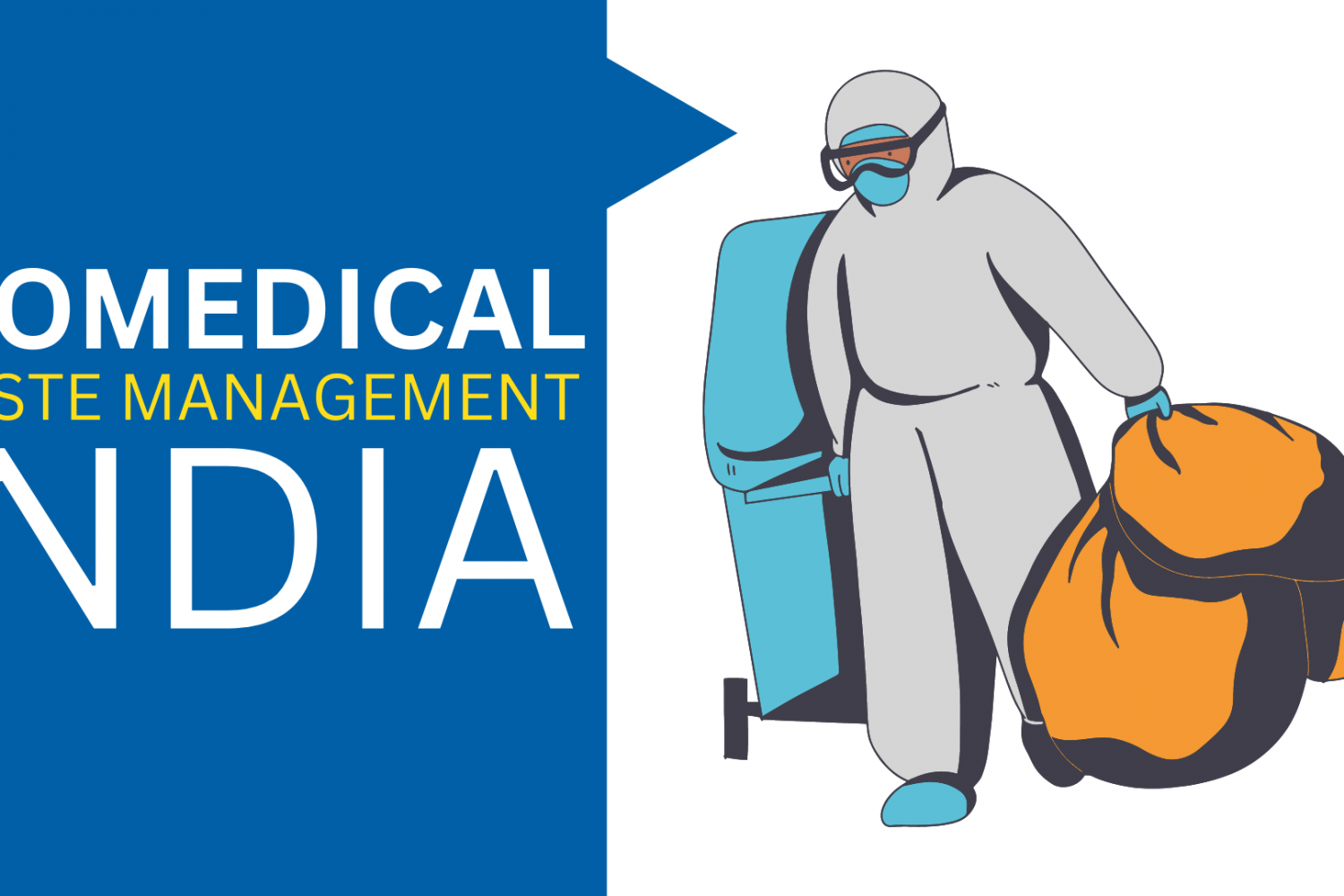Introduction
Biomedical waste management in India refers to any waste generated during the diagnosis, treatment, or immunization of human beings or animals, or in research activities related to these processes.
In India, the proper management of biomedical waste is crucial to protect public health and the environment. The improper disposal of biomedical waste can lead to the spread of infectious diseases and pose a risk to healthcare workers and the general public.
What is the bio medical waste management?
Bio medical waste management refers to the processes and systems in place for the proper handling and disposal of bio-medical waste. Biomedical waste is any waste generated during the diagnosis, treatment, or immunization of human beings or animals, or in research activities related to these processes.
It can include infectious materials, sharps (such as needles and scalpels), laboratory waste, and other types of waste that pose a potential risk to public health and the environment.
Proper biomedical waste management involves the segregation, collection, transportation, and treatment of this waste in a way that minimizes the risk of exposure to infectious materials and prevents contamination of the environment.
This can be achieved through the use of proper handling and storage techniques, as well as the use of technologies such as incineration, autoclaving, and microwave treatment to sterilize and dispose of the waste.
The management of biomedical waste is regulated by laws and regulations at the local, national, and international levels.
What are the 4 types of bio medical waste?
The Bio-Medical Waste Management Rules in India, which were formulated in 1998 and amended in 2016, specify four categories of bio medical waste:
- Infectious waste: This includes waste materials that are capable of transmitting infections, such as cultures and stocks of infectious agents, tissues and organs from animals and humans, and discarded sharps (such as needles and scalpels).
- Pathological waste: This includes waste materials that result from the diagnosis, treatment, or immunization of human beings or animals, such as body parts, tissues, and organs.
- Chemicals and pharmaceutical waste: This includes waste materials that are generated from the production, use, and testing of chemicals and pharmaceuticals, such as laboratory chemicals and expired or unused drugs.
- Genotoxic waste: This includes waste materials that are potentially hazardous due to their genotoxic (i.e., damage to genetic material) properties, such as cytotoxic drugs and waste contaminated with these drugs.
In addition to these four categories, the Bio Medical Waste Management Rules also specify other types of bio-medical waste that are to be managed in a similar manner, such as waste from blood banks, waste from diagnostic and research laboratories, and waste from quarantine areas.
Bio Medical Waste Management Rules in India
The management of bio-medical waste in India is regulated by the Bio-Medical Waste Management Rules, which were formulated in 1998 and amended in 2016. These rules provide guidelines for the segregation, collection, transportation, and treatment of biomedical waste.
Hospital Waste Management
According to the rules, all healthcare facilities, including hospitals, nursing homes, clinics, and laboratories, are required to properly segregate biomedical waste and store it in designated containers.
This hospital waste or medical waste should then be collected by authorized waste management companies and transported to approved treatment and disposal facilities.
The rules also specify the types of treatment and disposal methods that can be used for different categories of biomedical waste, such as incineration, autoclaving, and microwave treatment. These methods are designed to effectively sterilize the waste and render it safe for disposal.
Challenges in BioMedical Waste Management in India
One of the major challenges in bio medical waste management in India is the lack of awareness about the proper disposal of this waste. Many healthcare facilities and individuals are unaware of the dangers of improper biomedical waste disposal, and as a result, they may dispose of this waste in an irresponsible manner.
In addition, there is often a lack of infrastructure for the proper treatment and disposal of biomedical waste in India. This can lead to biomedical waste being inadequately treated or disposed of in the environment, posing a risk to public health and the environment.
Strategies for Improving Bio Medical Waste Management in India
To address these challenges, there are several strategies that can be implemented to improve biomedical waste management in India.
First, it is important for healthcare facilities to implement proper bio-medical waste management practices and to educate their staff about the importance of these practices. This can include providing training on bio-medical waste segregation, as well as implementing systems for the safe collection and transportation of bio-medical waste.
Second, there is a need to increase public awareness about the importance of proper biomedical waste disposal. This can be achieved through campaigns and educational programs aimed at the general public and healthcare workers.
Finally, the use of available technologies for the treatment and disposal of biomedical waste can help to improve the management of this waste in India. Technologies such as incineration, autoclaving, and microwave treatment can effectively sterilize biomedical waste and make it safe for disposal.
Conclusion
In conclusion, bio medical waste management in India is a critical issue that requires the attention of the government, healthcare facilities, and the general public. The proper disposal of biomedical waste is essential to prevent the spread of infectious diseases and to ensure the safety of healthcare workers and the general public.
To address the challenges of bio medical waste management in India, it is important for healthcare facilities to implement proper practices and to educate their staff and the general public about the importance of these practices.
In addition, the use of available technologies for the treatment and disposal of biomedical waste can help to improve the management of this waste in India. By prioritizing biomedical waste management, we can protect public health and the environment and ensure a safer and healthier future for all.

